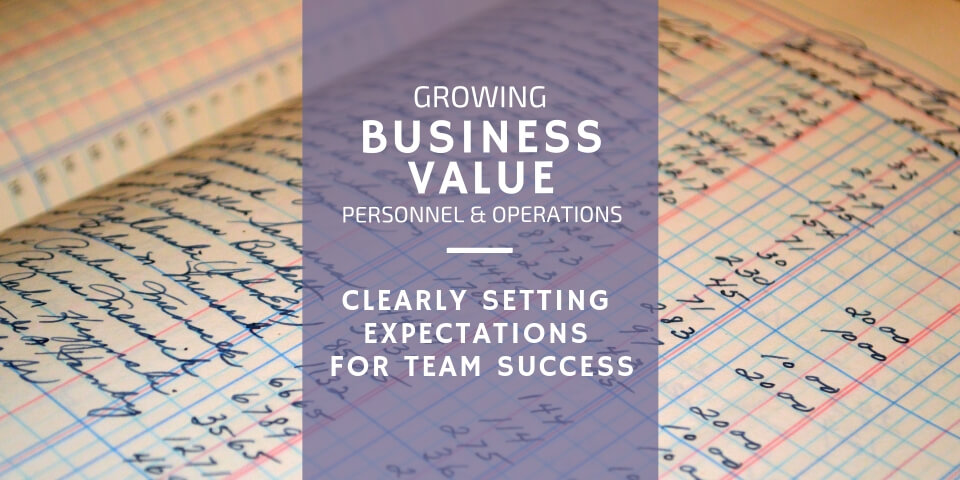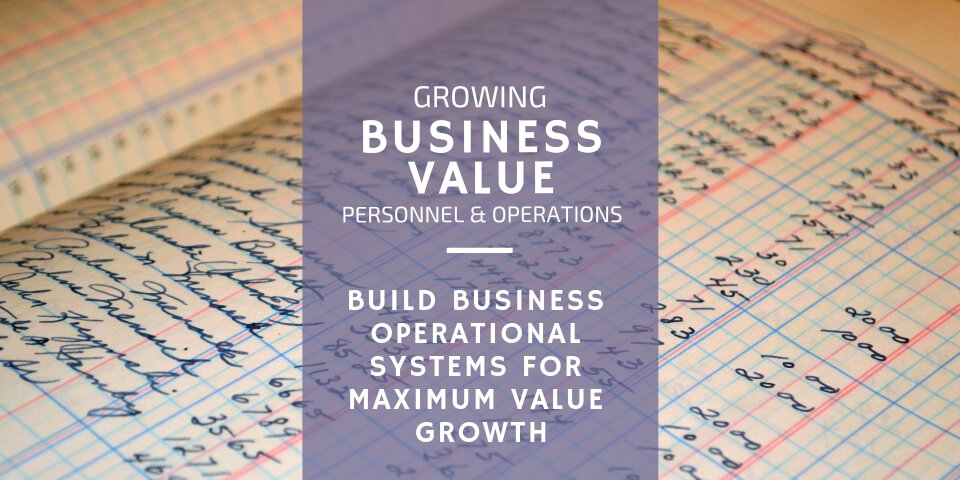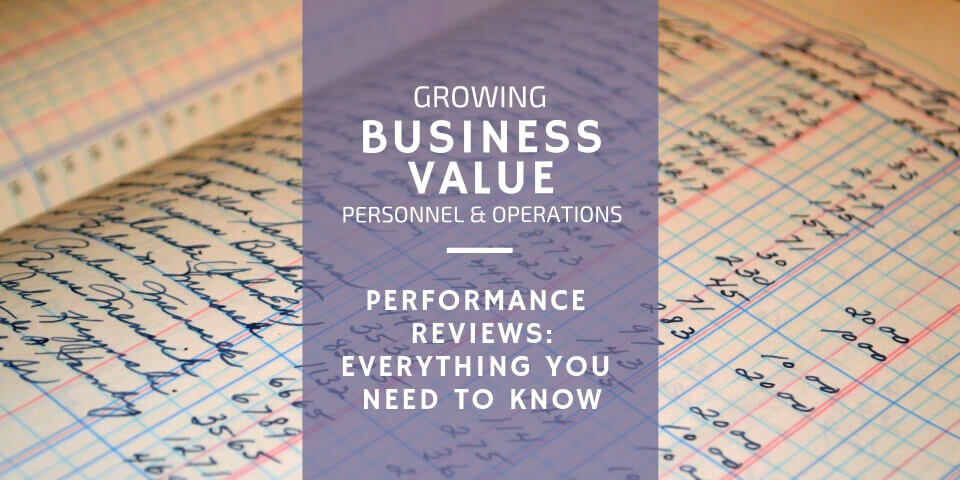
Employee Performance: Clearly Setting Expectations for Team Success
February 25, 2019
Build Business Operational Systems for Maximum Value Growth
March 1, 2019Everything You Need to Know About Conducting a Performance Review

Continually setting employee performance expectations in a process. It’s part of an on-going routine that will align with your investment into employee growth. You’re observing your team members throughout the year and providing feedback in small incremental portions. However, about twice a year, you want to formalize the performance management process by conducting a performance review.
Podcast Time Index for “How to Conduct a Performance Review with Your Team”
00:43 – How to Conduct a Performance Review with Your Team
02:01 – The Problem with Reviews
04:42 – Why Conduct Performance Reviews
08:04 – Performance Management vs. Performance Review
09:23 – Purpose of Performance Reviews
09:46 – Preparing for the Appraisal Session
12:52 – Conducting the Appraisal Session
17:28 – Be Descriptive and have Examples
17:46 – Performance Levels
20:31 – Core Message: The Last Word
Unlike the continuous performance management process, the performance review is a singular meeting that typically happens two times a year. It’s a dedicated time when everything stops, and no one gets sidetracked. It’s a time for summarizing and formally documenting employee performance. The performance review is a time for employee engagement where you give and receive feedback.
Why Should You Conduct a Performance Review?
Yet, if you’re actively engaging in performance management throughout the year, why would you need to conduct a performance review? What purpose does it serve? Well, performance reviews clearly explain to employees how they’re doing and what they gain from meeting individual and corporate expectations. Essentially, the formal review reinforces your expectations for your employees and for your organization.
A performance review:
- Gives opportunity for formal, written feedback and dialogue about team member development.
- Emphasizes, or builds, a culture of performance.
- Reinforces expectations amongst team members.
- Recognizes individual and corporate achievements.
- Generates documentation and records.
- Justifies your employment decisions.
How Should You Prepare for the Performance Review Meeting?
Before you jump straight into the formal valuation, you should prepare for the meeting.
- Schedule the performance review in advance.
- Allow 15-45 minutes with each team member.
- Review the notes you’ve been taking on team members throughout the year.
- Have examples, outlines, and suggestions for how employees can improve.
- Start with your best performers to hone your skills and craft your meeting process.
Tips for Conducting a Performance Review
So that’s preparing for the review meeting. Yet, you need some tips for the actual review, too.
- Don’t allow any interruptions. – Turn phones off. Block people out.
- Open with pleasantries. – Be kind. Don’t create a hostile environment.
- Explain the purpose of the meeting. – Remind team members that the review is a mutual process.
- Allow employees to assess their own performance first. – Ask them open-ended questions about how they think they performed throughout the year.
- Get into your appraisal. – Next, it’s time to assess your employees’ actions, behaviors, activities, and progress. Give specific examples of your conclusions. Determine and document whether employees agree or disagree with your appraisal.
- Develop a process for employees’ next steps. – Either create a process that helps them reach new expectations, or begin the process of termination.
Ultimately, rate each employee’s performance. Give them ranks like platinum, gold, silver, and bronze. Or give them grades like exceeds expectations, meets expectations, or fails to meet expectations. As you go through this performance review, document everything. Go into it with clear goals and expectations for employees and place them in positions where they can flourish within your company or where they head on to a different company.
The whole idea behind performance valuations is to find out which team members are performing at the level that will create the greatest possible value for your company. Top performers bring higher value when you’re selling your business or asking others to invest in your business. That’s just the way it goes.
Don’t miss our next set of Business Growth articles that deal with your business’s Operations.
If you prefer learning about dealing with employees or other business-related content by podcast, subscribe on Libsyn, iTunes, Stitcher, Spotify and more.



